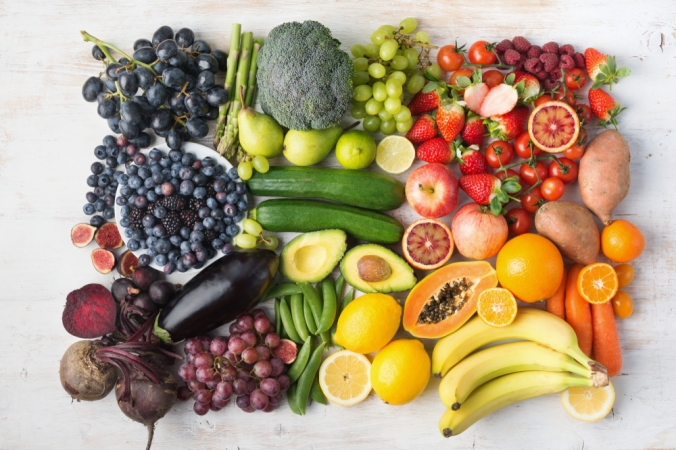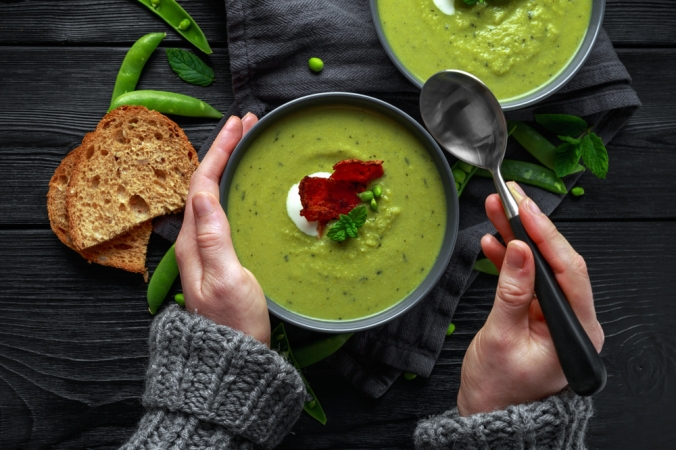
We’ve all heard of vitamin C. And we really started to understand its importance for our health once the Government campaign of ‘5-a-day’ of fruits and vegetables kicked in. The more fruits and vegetable you eat, the more vitamin C you’ll get, and hopefully your health will improve.
Interestingly, research shows that since neolithic times, intake of citrus fruits and berries, rich in vitamin C, have fallen by 90%. So why does Vitamin C matter so much?
Clinical Nutritionist, Suzie Sawyer, gives five reasons for making sure your diet is rich in vitamin C.
Vitamin C supports immunity

This is probably one of the main reasons that people know about vitamin C. It’s often talked about in the context of colds or flu because it plays a key role in immune mechanisms.
Vitamin C enhances the production of white blood cells which are essential for fighting off unwanted invaders by increasing antibody levels. However, during times of physical or emotional stress, we tend to lose more vitamin C in the urine. This also happens when we’re subjected to chemical stressors such as pollutants or cigarette smoke, hence a good daily supply of vitamin C is essential.
Vitamin C is a key antioxidant

Indeed, it’s our primary antioxidant helping to protect the body from free radical damage. The body is very clever (as we know!) and it has in-built antioxidant enzyme systems to protect the body from the outside world but also what goes on inside the body. Normal metabolic processes create free radicals; hence we have these systems in place.
These enzyme systems need vitamin C to function correctly. Since it’s a water-soluble nutrient, the body can’t store it, and so daily intake is essential.
Vitamin C is essential for collagen production

Collagen is, of course, a hot topic right now, especially in the context of pro-ageing and skin health. However, it’s also the most abundant structural protein in the body, without which we would literally collapse!
Collagen holds the body together and is part of connective tissue, cartilage, tendons and much more besides, making it essential for wound repair, healthy gums, and prevention of bruising. None of this can happen without vitamin C.
Vitamin C is needed for a healthy heart

Vitamin C primarily helps protect against cardiovascular disease down to its role as an antioxidant, plus it strengthens collagen structures of the arteries. Damage from free radicals is a major factor in atherosclerosis, due to LDL or ‘bad’ cholesterol being oxidised and causing blockages.
The good news, however, is that vitamin C helps reduce cholesterol and increases levels of HDL or ‘good’ cholesterol, so has a protective effect. Additionally, it helps reduce blood pressure and keeps blood flowing smoothly through the blood vessels.
Vitamin C helps reduce allergic reactions

Vitamin C is a natural antihistamine by preventing secretion of histamine by white blood cells (which is actually a normal part of the immune response) and helping detoxify histamine. Problems occur when we can’t control histamine production effectively, and then the tell-tale unpleasant allergic reactions occur.
Having a higher intake of vitamin C might also help sufferers of asthma by controlling the release of histamine, but also because of its work as an antioxidant in the airways. Since vitamin C helps boost immunity, any external stressor such as environmental issues which often trigger asthma attacks, may be better controlled.
What are the best sources of vitamin C?

Acerola cherries, red peppers, kale, broccoli, strawberries, Brussels sprouts, oranges, guavas, and red cabbage. However, all fruits and vegetables contain some so just load up your plate with colour!
FOR MORE GREAT NUTRITION AND LIFESTYLE ADVICE:
Sign up to receive our blog and get a weekly dose of the latest nutrition, health and wellness advice direct to your inbox.
Follow us on Instagram @feelaliveuk or on Twitter @feelaliveuk for nutrition, lifestyle and well-being tips.
Visit us at www.feelaliveuk.com for the latest offers and exclusive Alive! content.
Follow and Chat with Suzie on Twitter @nutritionsuzie
For everything you need to know about vitamins, minerals and herbs visit our sister site Herbfacts
All images: Shutterstock






















































